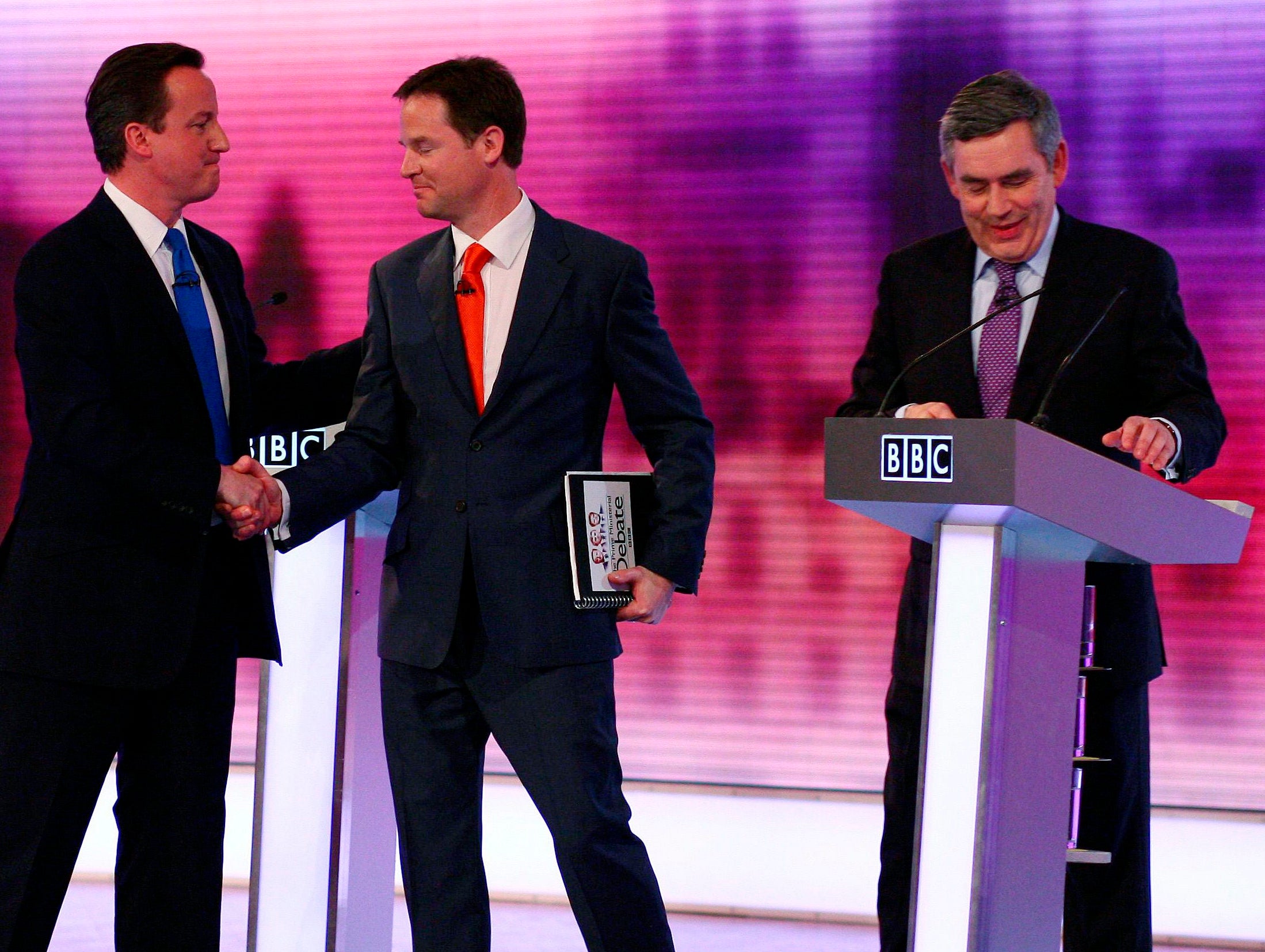
Sky News has launched a campaign to make live televised party leader debates a permanent fixture of general elections, saying it is “about doing what’s best for the voting public”.
The broadcaster has called for the formation of an independent Leaders’ Debate Commission to take the “decision-making process out of the hands of political parties” after party leaders have previously avoided election debates.
The Make Debates Happen campaign, which launched today, is backed by senior politicians including Lib Dem leaders past and present Sir Nick Clegg and Sir Vince Cable, and former Home Secretary Amber Rudd.
Announcing the campaign, Sky News said a Leaders’ Debate Commission would set the format and rules of the debate and handle their moderation.
It would also ensure the audience was objective, outline the criteria for political party participation, and steer negotiations between broadcasters and parties.
Head of Sky News John Ryley, who yesterday wrote to all party leaders about the proposal, said: “This is all about doing what’s best for the voting public. Sky News, along with the other broadcasters, changed the politics landscape in this country by creating the first leaders’ debates eight years ago.
“Sadly, it stands as an exception rather than the watershed it should have been. Political manoeuvring and failings by the broadcasters has allowed that momentum to be lost.
“Sky News believes an independent commission should set the terms for debates in future, to inform and engage the voting public with a head-to-head debate between the two political leaders battling it out for Number 10.”
A poll by Sky Data found that eight in 10 (81 per cent) people in the UK think politicians usually try to avoid answering voters’ questions, while 46 per cent of Britons said they would have more respect for a politician if they took part in live televised debates during general elections.
In 2010 the leaders of the three main political parties, then David Cameron, Gordon Brown and Clegg, took part in three debates – one each on Sky News, ITV and the BBC (pictured).
In 2015 there was a seven-way debate between former Prime Minister David Cameron, Labour’s Ed Miliband and the leaders of smaller parties.
There were also two programmes featuring the main party leaders, but they did not go head-to-head.
Before last year’s general election Theresa May refused to debate with Labour leader Jeremy Corbyn or other party leaders, resulting in then-Home Secretary Amber Rudd taking her place.
Speaking in support of the campaign, Rudd said: “Politicians don’t always agree with journalists and unusually journalists don’t always agree with politicians, so otherwise there’s going to be a fight about it.”
Clegg said that in 2015 and 2017 voters were deprived an important opportunity, adding in an article for Sky News: “These debates should be an immovable part of a general election in this country and a key component of our democratic process.
“They should not be in the gift of whichever political party is in power, or whichever politician is ahead of the polls.”
Sky News editor at large Adam Boulton, who led the 2010 Sky News leaders’ debate, said there has not been a “proper” equivalent since then and that both politicians and broadcasters are responsible.
“The electorate was repeatedly deprived of the most powerful live, appointment-to view political programming that television can provide,” he said.
“Politicians are to blame for this failure. So too are the broadcasters.
“To ensure leaders’ debates happen regularly in future responsibility for organising them needs to be taken out of both their hands.”
Sir Vince Cable, the current Liberal Democrat leader, also backed the proposal, saying: “We had a very unsatisfactory position at the last election that Theresa May wouldn’t participate in leadership debates.
“On the previous occasion, in 2010 for example, there were leadership debates. And they energised the whole election campaign.
“But it’s surely right that the ground rules should be decided in a non-political independent environment of the kind you suggest.
“We should now be putting this structure in place so there isn’t argy-bargy a few weeks before the next general election.”
Picture: Reuters/Gareth Fuller/Pool
Email pged@pressgazette.co.uk to point out mistakes, provide story tips or send in a letter for publication on our "Letters Page" blog
